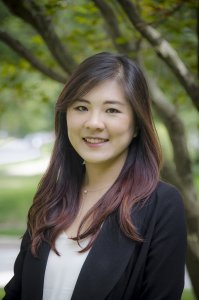Presented By: Nam Center for Korean Studies
Nam Center Colloquium Series | Dictator's Modernity Dilemma: Development and Democracy in South Korea, 1961-1987
Joan Cho, Assistant Professor, East Asian Studies and Government, Wesleyan University

Dictator’s Modernity Dilemma: Development and Democracy in South Korea, 1961-1987 aims to reconcile the two seemingly contradictory views regarding Korea’s path to modernity and democracy. At first blush, South Korea illustrates the basic premise of modernization theory: economic development leads to democracy. However, under Park Chung Hee (1961-1979) and Chun Doo Hwan (1980-1988), Korea’s political system became increasingly authoritarian alongside the growth of the national economy. These South Korean autocrats sought legitimacy of their coup-born regimes by holding legislative elections and investing in economic development. I argue and demonstrate that the structural foundations of modernization (industrial complexes and higher education in particular) had an initial stabilizing effect on authoritarian rule by increasing regime support, but also contributed to the development of mobilizing structures for anti-regime protests in the 1970s and 1980s by various social movement groups, most importantly workers and students. By highlighting the differential impacts of modernization structures over time, my research shows how socioeconomic development acted as a “double-edged sword” by stabilizing the regimes at first, but destabilizing the dictatorship over time.
Dr. Joan Cho is an Assistant Professor of East Asian Studies and an Assistant Professor, by courtesy, of Government at Wesleyan University. Cho specializes in authoritarianism, democratization, social movements, and authoritarian legacies in Korea and East Asia. Her research on authoritarian regime support, South Korean democracy movement, and electoral accountability in post-transition South Korea are published in Electoral Studies, Journal of East Asian Studies, Studies in Comparative International Development, and Routledge Handbook of Korean Culture and Society. Her additional writings
Dr. Cho received her PhD and AM degrees in Political Science from the Department of Government at Harvard University and a BA (cum laude with honors) in Political Science from the University of Rochester. She is an Associate-in-research of the Council of East Asian Studies at Yale University, Executive Secretary of the Association of Korean Political Studies, and a 2018-2019 US-Korea NextGen Scholar. Cho previously held visiting fellow positions at the Asiatic Research Institute at Korea University, Taiwan Foundation for Democracy, and the Center for International Studies at Seoul National University.
This lecture is cosponsored by the Weiser Center for Emerging Democracies.
Dr. Joan Cho is an Assistant Professor of East Asian Studies and an Assistant Professor, by courtesy, of Government at Wesleyan University. Cho specializes in authoritarianism, democratization, social movements, and authoritarian legacies in Korea and East Asia. Her research on authoritarian regime support, South Korean democracy movement, and electoral accountability in post-transition South Korea are published in Electoral Studies, Journal of East Asian Studies, Studies in Comparative International Development, and Routledge Handbook of Korean Culture and Society. Her additional writings
Dr. Cho received her PhD and AM degrees in Political Science from the Department of Government at Harvard University and a BA (cum laude with honors) in Political Science from the University of Rochester. She is an Associate-in-research of the Council of East Asian Studies at Yale University, Executive Secretary of the Association of Korean Political Studies, and a 2018-2019 US-Korea NextGen Scholar. Cho previously held visiting fellow positions at the Asiatic Research Institute at Korea University, Taiwan Foundation for Democracy, and the Center for International Studies at Seoul National University.
This lecture is cosponsored by the Weiser Center for Emerging Democracies.